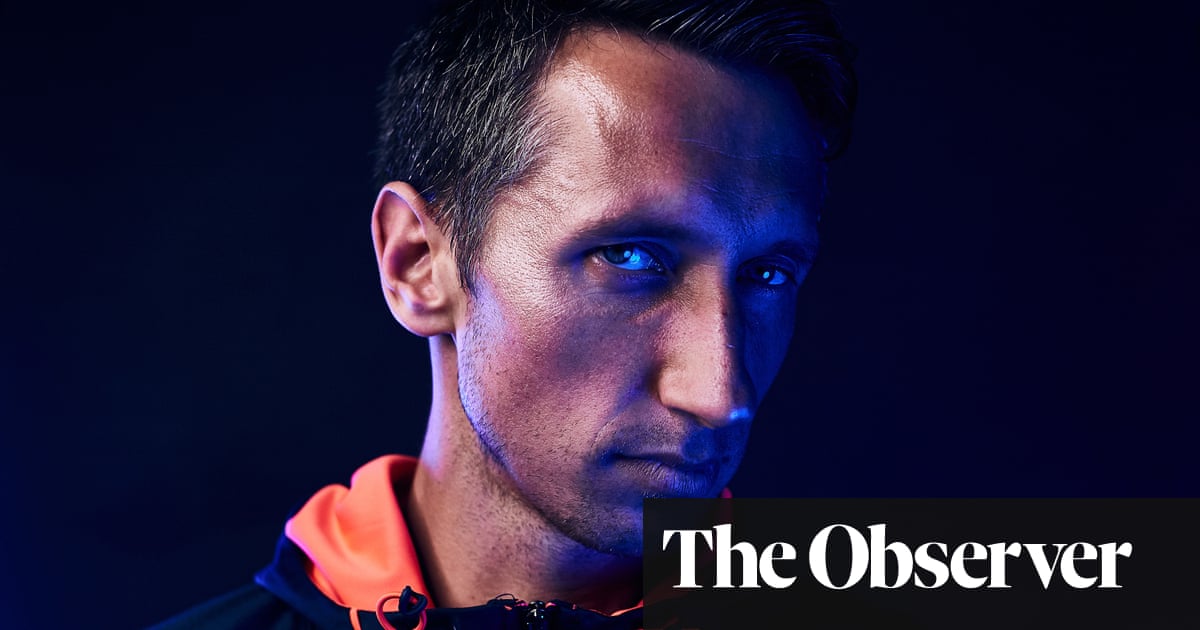Sergiy Stakhovsky: ‘The tennis world punished those who stood up for Ukraine’ - 4 minutes read

Shortly before Wimbledon announced in March that it was lifting its ban on Russian and Belarusian players, the tournament director, Jamie Baker, had a conversation with Sergiy Stakhovsky. The Ukrainian, who beat Roger Federer at Wimbledon in 2013, retired in early 2022 but when, shortly afterwards, Russia invaded, he decided to go home to fight for his country.
The announcement was not a surprise, especially because the other grand slams failed to back Wimbledon. When the men’s Association of Tennis Professionals and the Women’s Tennis Association, who fined Wimbledon and the Lawn Tennis Association, threatened to remove the licences for tournaments such as Queen’s, the All England Club was left with little choice.
“Last year, Wimbledon showed great bravery,” Stakhovsky says. “They were pioneering in terms of what should be right and what should be wrong. Unfortunately, they didn’t find any support within their own ranks. I’m talking about grand slam tournaments. Then we had the particularly sad situation where our own tours fined Wimbledon for doing it.
“Yet, a year down the road, we have [Aryna] Sabalenka [of Belarus] not willing to answer a direct question whether she, as a personal individual, condemns the acts which are conducted by her country.
“You could say that last year they were scared for their families, for their close ones, scared to be prosecuted in their countries [by speaking out]. But not a year and a half into the war when they had opportunities to leave and take their families with them.”
For Stakhovsky, the rest of the tennis world let Wimbledon, and Ukraine, down. “Unfortunately, it did … by punishing those who would [stand] up and oppose those who should be really the ones speaking about the war in the first place. The Russians, the Belarusians, they should be the first ones to say: ‘This is a terrible situation, we do not support our government in this bloodbath which they created in the territory of Ukraine by killing civilians, children and women.’ Yet they are saying that sport should be out of politics. I’m not sure whether war really connects with the word politics, because war is plain simple. There’s good and there’s wrong.”
Sergiy Stakhovsky, who beat Roger Federer at Wimbledon in 2013, signed up for Ukraine’s military reserves. Photograph: Sergei Supinsky/AFP/Getty ImagesUkrainian players have made it clear that they will not shake the hands of Russian or Belarusian opponents, something widely accepted on the tours. At last month’s French Open, however, Sabalenka courted controversy when, after beating Ukraine’s most famous player, Elina Svitolina, she stood at the net, seemingly waiting for a handshake she knew would not come. The Paris crowd misunderstood and booed Svitolina.
“Not shaking hands is a strong message – unfortunately, in Paris we’ve seen some wrong reception from the crowd,” Stakhovsky says.
“It would make much more of a difference if [players] would not compete against Russians, because then financially it would be a bit different for a tournament when suddenly they don’t have a semi-final or a final.
“It is bizarre, the way Sabalenka is presenting herself as a victim in this situation is just pathetic. A lot of people who I competed with, I cannot say that I don’t like them. I just lost respect for them completely. Not as a player but as human beings.”
Stakhovsky reserved special praise, though, for Daria Kasatkina, the Russian who came out as gay in July 2022 and who has been heavily critical of Russia’s invasion of Ukraine.
“Kasatkina has more courage than all of the Russian players combined together,” he said. “She did something incredibly brave. I incredibly admire her.
“She was always a great tennis player, a talented one. She always played a tennis which was different from [others] but when I heard the interview she gave, I was honestly blown away. I deeply respect her for what she did and what she said.”
Source: The Guardian
Powered by NewsAPI.org